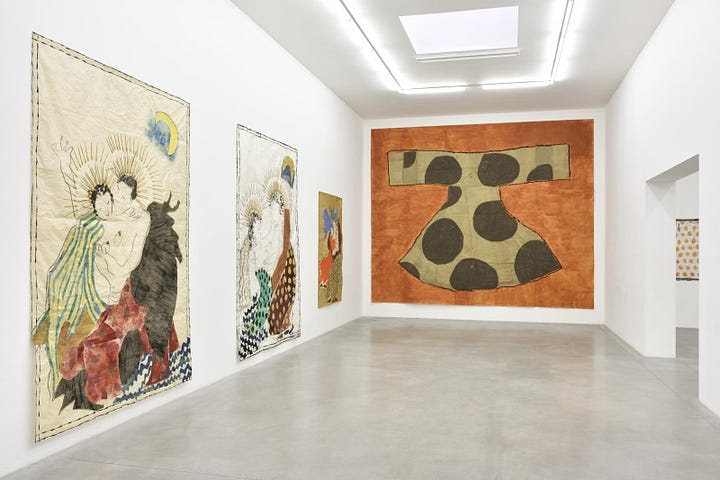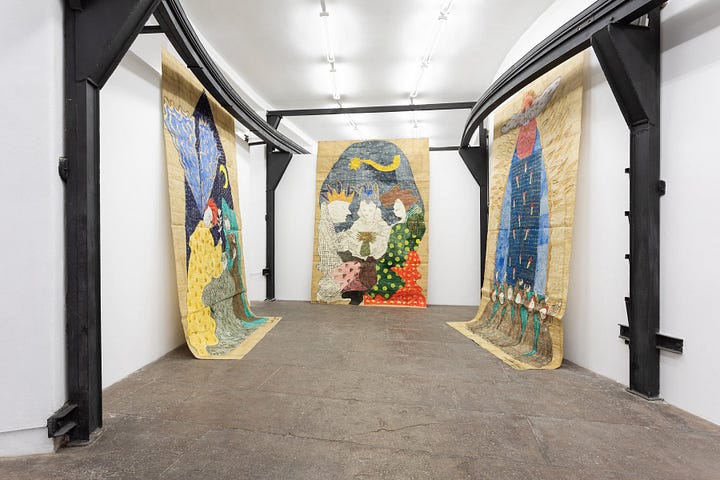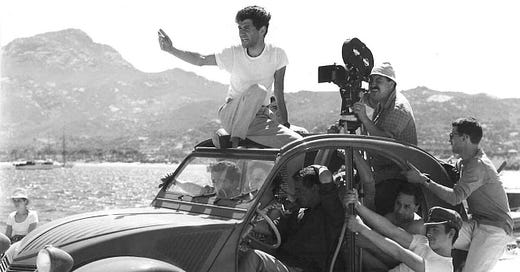
My first job in high school wasn’t flipping burgers, it was coding websites. I started with MySpace pages for friends and then moved on to Geocities site for their parents’ businesses. The internet felt radically different back then. It was the time of Napster, Yahoo Messenger, animated GIFs, and Flash. More chaotic, malleable—and yes, endearingly ugly. Compared to today’s internet it felt like the Wild West.
“In the past, software was an island. Today software is the infrastructure everything sits on top of. That means our development metaphors will shift from the Wild West of scattered buildings on the open range to something more like Urban Planning.” — Ryan Singer on Twitter
Nowadays the roads seem all but paved. The internet has, for the most part, grown up. Primarily lead by the major platforms: LinkedIn, TikTok, Squarespace, Facebook, etc. Online services and experiences are now more centralized, standardized and commercially driven. Ask yourself: how much of your weekly screen time report can be attributed to time spent outside these digital garden walls, in the true World ‘Wild’ Web? This award site, for small indie websites called The Tiny Awards, recently reminded me of those greener pastures.
Tiny Awards exist to celebrate the personal internet, what we described last year as ‘the other web, the one that is small and handmade and isn’t trying to sell you anything or monetise anything but which instead is about people using the digital tools we all have access to to make the sorts of small, personal experiences that you tend not to see ‘in feed’’.
Last year’s winner of the award: a page dedicated to rotating sandwiches. The judges described their chosen winner as “small, fun, pointless, playful, whimsical, silly and lovely, all of the qualities we wished to embody with these awards”. Other fun notables include One Minute Park and Alt Text Selfies.
There’s also the Digital Garden movement, which goes against the grain to cultivate one’s own little piece of the internet. Back in 2020 the MIT Tech Review did a pretty significant write-up on the scene, and while it remains a niche, nerdy sub-culture of the internet, it’s nice to see groups keeping the dream alive of independent digital spaces dedicated to creative curiosity, open-ended learning and self-expression.
“Some suggested that the digital garden was a backlash to the internet we’ve become grudgingly accustomed to, where things go viral, change is looked down upon, and sites are one-dimensional. Facebook and Twitter profiles have neat slots for photos and posts, but enthusiasts of digital gardens reject those fixed design elements. The sense of time and space to explore is key.” — Tanya Basu, MIT Tech Review
A piece of the old web seems to have made a notable comeback in recent years: the personal email newsletter. While it wouldn’t be considered part of the ‘wild web’ there’s at least a refreshed freedom in reaching directly to your readers’ inboxes. Foregoing the need to play into the usual trends and tactics that social platform feeds demand of us. Newsletters can cater to a wide, commercialized audience, or they can just be for small private circles of friends. My personal favourite is somewhere in the middle. A few public favs from my own circles:
Amy Jacobowitz’s Fractional
Nolan Giles’s Design Considered
Nick Hallam’s NHallam
Nick Crocker’s Branches (I don’t know Nick directly but his inspired me start something similar)
Neil Perkin’s Only Dead Fish (also never met but consistently great)
Email newsletters may not be as rebellious or free-form as digital gardens or bespoke indy websites, but they’re something. Take the one you’re reading right now. Sending out these some-odd-monthly-rants has already led to unexpectedly rewarding conversations and connections. I’ve had a mix of old friends, current acquaintances, and complete strangers reply to share their thoughts on something that caught their interest. In terms of writing, sharing and discussion, I think many of us feel freer to utilize a medium like this compared to the dominate personal and professional social platforms. A digital “third place”, if you will.
So, what’s left to do but join in? Perhaps it’s time to carve out an online space of your own: start a newsletter and share it with colleagues; kickstart a side-project website or app about something you’re passionate about; open-source your learning in a digital garden. But for what it’s worth, make it fun, make it playful, and potentially pointless.
What’s your ‘page of rotating sandwiches’?
"When I was young there were beatniks. Hippies. Punks. Gangsters.
Now you’re a ‘hacktivist’. Which I would probably be if I was 20. Shuttin’ down MasterCard. But there’s no look to that lifestyle! Besides just wearing a bad outfit with bad posture. Has WikiLeaks caused a look? No! I’m mad about that. If your kid comes out of the bedroom and says he just shut down the government, it seems to me he should at least have an outfit for that." — John Waters
Links
Kyle Chayka declares Spotify has entered the era of “enshittification”. I couldn’t agree more.
Taliban Militants Fed Up With Office Culture, Ready to Quiet Quit: I read this months ago and I’m still thinking about it.
Andrew O’Hagan's defence of literature and truth in the age of the machines: Recorded during the Margaret River Readers & Writers Festival on ABC’s Big Ideas podcast.
Visakan Veerasamy’s “Are you serious?” essay: I think I enjoy one out of every ten articles Veerasamy writes, but when I do it’s worth the ride.
The Founders Podcast on Rolex’s founder, Hans Wilsdorf: Some impressive lessons here in brand building and alignment with product roadmap. TIL it wasn’t fashionable for men to wear wristwatches until after WW1 – before that it was considered feminine and the bros instead swung about their fancy pocket watches.
Isabella Ducrot, an Artist Flowering in her Nineties.
This title was taken from the wonderful New Yorker write-up by Rebecca Mead. Isabella Ducrot is an Italian artist known for her unique approach to textile art and mixed media. Not only is she thriving in her 90’s as a renowned artist but she didn’t really pick up a brush until her fifties.
In this particular interview she offers an enlightening perspective on aging, particularly from the feminist perspective. Which Mead, the article’s author, summarizes so well here:
“We tend to assign to the elderly—and especially to elderly women—the vague, and often diminishing, attribute of wisdom, thereby suggesting that their own creative, intellectual, or erotic evolution has come to an end, and that their sole remaining role is to give advice to others. Ducrot’s work and life offer an alternative possibility: that an individual might remain wide-eyed and open to experience—in an enduring state of naïveté, and with a capacity to be joyfully surprised—until the very end.” — Rebecca Mead, The New Yorker
And of course, her home in Rome is as chic as you’d expect it to be.




More links
Can’t code but want to relive that Geocities vibe? Try mmm.page. Looks fun.
Can Anyone Compete With Meta’s New AI Model?: Evan Armstrong offers a state-of-play for the current AI wars/potential bubble.
The Next Arsenal of Democracy - Michael Gibson addresses the countercultural vibe shift happening in El Segundo’s emerging hub of young defense & deep-tech innovators. If you enjoyed that John Waters quite above then check this one out.
“The fight to reverse stagnation comes in many forms, not just in technology. It’s also in dress and philosophy.”
A few fav talks from the 2024 Figma Config:
Tim Cassola did a great write-up on the challenges of resource allocation within an agency model.
Former Huge CEO Mat Baxter on transforming the creative agency business model: Baxter comes out swinging here, and I’m all for it. Though I’m technically out of the creative agency game now, I still think about it a lot. More out of concern. Love too – but mostly concern.
Winter reading
Cormac McCarthy’s Blood Meridian was ★★★★★. It’s only a matter of time before a re-read. I then tried The Passenger straight after but meh. Now on a self-imposed McCarthy break but might soon swing back to No Country For Old Men.
Jared Diamond’s Guns, Germs & Steel on Audiobook. If you liked Sapiens check this out, it’s also worth the hype.
On the biz read front I’ve been re-flipping through Andrew Grove’s High Output Management and Claire Johnson’s Scaling People.
There’s actually a fascinating tear down on Scaling People here. It’s a little harsh but I wish more critique had teeth like this. I agree in parts but still see a lot of value in Johnson’s book.
Wim Wenders’s new film Perfect Days was wonderful. It’s quite literally two hours of a man cleaning public toilets in Shibuya but it somehow just works.
𓇢𓆸 If you like what you read please consider forwarding to a friend, colleague or foe.






Reading NCFOM was an unexpected riot. So so good, and amazing how closely the film matches the book. I can't remember any book being matched as closely as the Coen Bros effort. Apparently they were given the book before publishing, I think McCarthy wrote it as a screenplay.
Do read McCarthy's Kekule Problem if you haven't: https://nautil.us/the-kekul-problem-236574/ And once you do, then I recommend John Gray's review of The Passenger, which puts it in a new light: https://archive.md/7cgnZ
The dedicated page to rotating sandwiches is hilarious! Also love the term "digital gardening".